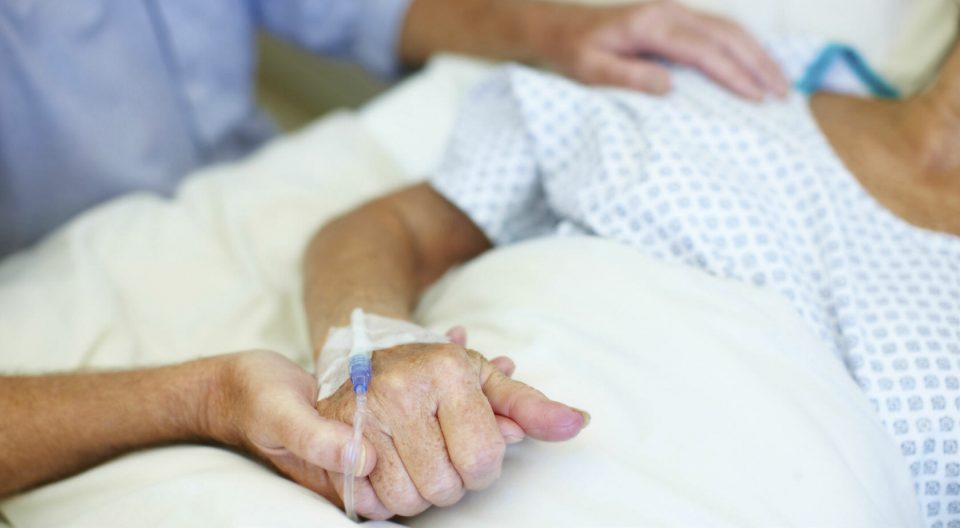Seeking God in the midst of a health crisis

Within minutes, my world was turned upside down. The tests returned and we received a devastating diagnosis: my mother had cancer. Health crises can make us feel hopeless and scared of an unknown future. In the midst of this loss of control, when we are grieved for ourselves or for a loved one, we can feel that God has forsaken us. How can we find God in the midst of a health crisis like this? Where is God in the midst of so much pain? Where is he in my pain?
Struggling with questions
Where are you? I have spent years repeating this question in my prayers as I watched my mother's journey with cancer: diagnosis, surgery, chemotherapy, radiation. Why did you let that happen? Why have you abandoned us? If these questions sound familiar, it is because you are not alone. Christians have been grappling with these questions for thousands of years. We find an example of this in Psalm 22: 1-2: “My God, my God, why have you forsaken me? Why are you so far from saving me, so far from my cries of anguish? My God, I cry during the day, but you don't answer, at night, but I can't find rest ”. Like the psalmist, I felt abandoned. I felt helpless, watching the people I love, the best people I know, suffering undeservedly from health crises. I have been angry with God; I questioned God; and I felt ignored by God. We learn from Psalm 22 that God validates these feelings. And I have learned that not only is it acceptable for us to ask these questions, but God encourages it (Psalm 55:22). In us, God created intelligent beings with a deep capacity for love and empathy, capable of feeling sadness and anger for ourselves and for those we care about. In her book, Inspired: Slaying Giants, Walking on Water, and Loving the Bible Again, Rachel Held Evans examines the story of Jacob struggling with God (Genesis 32: 22-32), writing “I am still struggling and, like Jacob, I will fight until I am BLESSED. God hasn't let me go yet. “We are children of God: he loves us and takes care of us for better or for worse; in the midst of our sufferings he is still our God.
Finding Hope in the Scriptures
When I first learned of my mother's cancer diagnosis several years ago, I was shocked. My sight clouded by a sense of helplessness, I turned to a familiar passage from my childhood, Psalm 23: "The Lord is my shepherd, I lack nothing". A Sunday school favorite, I had memorized this verse and recited it countless times. The meaning changed for me when it became my mantra, in a sense, during my mother's surgery, chemotherapy and radiation. Verse 4 attacks me in particular: "Even if I walk through the darkest valley, I will fear no harm, because you are with me." We can use verses, passages, and family stories to find hope in the scriptures. Throughout the Bible, God assures us that although we walk in the darkest valleys, we must not be afraid: God "carries our burdens every day" (Psalm 68:19) and urges us to remember that "If God is for us, who can be against us? " (Romans 8:31).
As a caregiver and a person who walks alongside those facing health crises, I also find hope in 2 Corinthians 1: 3-4: "Praise be to God and Father of our Lord Jesus Christ, Father of compassion and God of all comfort, which comforts us in all our troubles, so that we can comfort those who are in trouble with the comfort we ourselves receive from God ”. An old adage says that in order to take care of others, we must first take care of ourselves. I find hope in knowing that God will give me comfort and peace in order to pass it on to those who are battling the hardships of health crises.
Feel the peace through prayer
Recently, a friend of mine had an epileptic fit. She went to the hospital and was diagnosed with a brain tumor. When I asked her how I could support her, she replied: "I think praying is the main thing." Through prayer, we can take our pain, our suffering, our pain, our anger and leave it to God.
Like many, I see a therapist regularly. My weekly sessions provide me with a safe environment to express all my emotions and I come out lighter. I approach prayer in much the same way. My prayers do not follow a specific form nor do they happen at a designated time. I simply pray for the things that weigh down my heart. I pray when my soul feels tired. I pray for strength when I have none. I pray that God will remove my burdens and give me the courage to face another day. I pray for healing, but I also pray that God will extend his grace to those I love, to those who suffer in the midst of diagnosis, testing, surgery and treatment. Prayer allows us to express our fear and leave with a sense of peace in the midst of the unknown.
I pray that you will find comfort, hope and peace through God; may his hand rest on you and fill your body and soul.